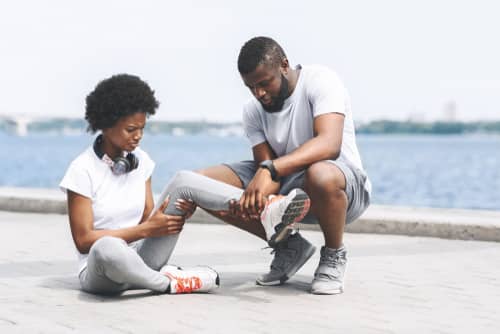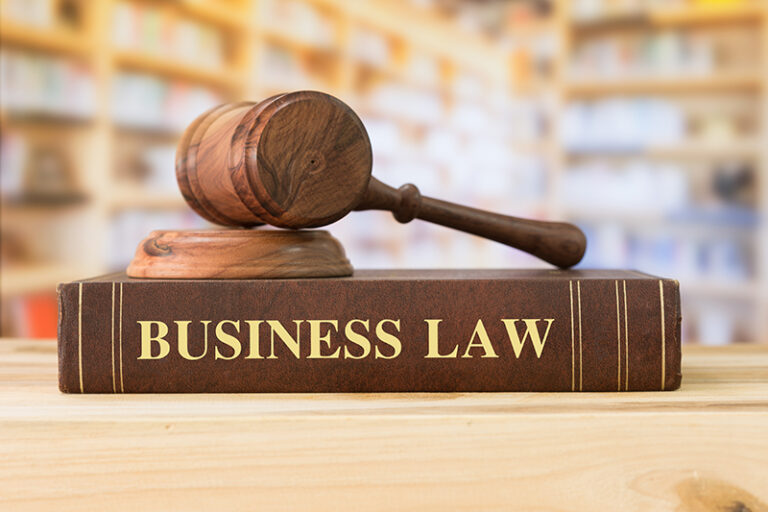- Car Accidents
If you have been injured in an accident, every decision you make in the hours and days that follow can affect your health, your financial recovery, and your legal rights. Whether the crash happened at low speeds or caused severe injuries, knowing what to do helps protect your personal injury claim and strengthens your case with insurance companies.
In this blog, we walk through the key steps to take after a car accident, explain your legal rights under Georgia law, and show how working with an experienced Douglasville car accident lawyer can help you secure the compensation you deserve.
Step 1: Ensure Immediate Safety
The moments after a car accident are critical. Your first priority is safety: for yourself and for others.
Move to a Safe Location
If your vehicle is operable, steer it to the side of the road or out of traffic. Turn on your hazard lights to alert other drivers. Staying in the flow of traffic after a collision increases the risk of additional injuries.
Check for Injuries
Look for signs of serious injuries such as bleeding, broken bones, or head trauma. Check your passengers as well. Injuries like internal bleeding, whiplash injury, or soft tissue damage may not be obvious right away. If anyone is injured in an accident, call for medical help immediately.
Call 911
Contact emergency services even if the accident seems minor. Georgia law under O.C.G.A. § 40-6-273 requires drivers to report any motor vehicle collision that results in injuries, fatalities, or property damage exceeding $500. A police report supports your personal injury claim and protects your legal rights.
Remain Calm and Stay Put
Unless you’re in danger, stay at the scene until police arrive. Leaving the site of a car accident involving injuries is a criminal offense in Georgia. Cooperate with law enforcement and avoid discussing fault with the other driver. Save those details for your car accident attorney.
Step 2: Document the Scene
Accurate documentation helps protect your injury claim and strengthens your position with insurance companies.
Take Photos and Video
Use your phone to capture the vehicles, road conditions, skid marks, traffic signs, and any visible injuries. Photograph broken glass, damage to the steering wheel, and any deployed airbags. Record both wide shots and close-ups. This helps establish how the accident occurred and the severity of the crash.
Exchange Information
Get the other driver’s name, contact number, insurance provider, license plate, and driver’s license number. Be polite but avoid discussing fault or details of the collision. If there are passengers or witnesses, ask for their names and phone numbers.
Write Down Key Details
Record the time, date, and location of the car accident. Note the weather, road conditions, and traffic flow. Write down what you remember about the crash while it is still fresh. Include anything the other driver said at the scene that could help show who was at fault.
Request a Police Report
Ask the officer for the police report number before leaving the scene. The report will list all involved parties and provide an initial assessment, which is valuable for your insurance claim or personal injury case.
Step 3: Seek Prompt Medical Treatment
Medical care after a car accident is critical, even if you do not feel immediate pain.
Visit a Doctor Immediately
After a motor vehicle collision, see a medical professional as soon as possible. Injuries like whiplash, internal bleeding, back injuries, and soft tissue damage may take hours or days to show symptoms. A prompt exam helps detect problems early and reduces the risk of long-term disability.
Document Every Injury
Tell the doctor about all pain or discomfort, even if it seems minor. Report knee injuries, shoulder pain, headaches, bruises, or anything unusual. Your medical records will form the foundation of your personal injury claim. Accurate records help connect your medical treatment directly to the car accident.
Follow the Prescribed Treatment Plan
Attend all follow-up appointments. Complete physical therapy, imaging tests, or referrals. Insurance companies review your treatment history. Gaps in care or failure to follow medical advice can be used to reduce or deny compensation.
Save All Bills and Receipts
Keep copies of all medical bills, including prescriptions, hospital stays, tests, and equipment. These expenses are recoverable as part of your injury claim. Accurate financial records also support your demand for full compensation.
Step 4: Notify Your Insurance Provider
After receiving medical treatment, report the accident to your insurance company as soon as possible.
Make the Initial Report
Contact your insurance provider and give them the basic facts. Include the time and location of the crash, the names of the drivers involved, and the police report number if available. Stick to the facts. Do not offer opinions or speculate about fault.
Be Cautious With Statements
Insurance companies may ask for a recorded statement. You are not required to provide one without legal advice. Statements can be used to challenge your claim or reduce the value of your compensation. Speak with a car accident attorney before giving detailed information.
Keep a Record of All Communication
Write down the name of every person you speak with, along with the date and time of each call. Save emails and letters. If the insurance company delays or denies your injury claim, these records can support your case.
Know Your Coverage
Review your policy to understand your benefits. This includes personal injury protection, property damage liability, and coverage for medical expenses. Knowing your rights under your insurance policy helps prevent unfair treatment and low settlement offers.
Step 5: Understand Your Legal Rights in Georgia
Knowing your legal rights helps protect your ability to recover full compensation after a car accident.
Georgia Is an At-Fault State
Georgia follows an at-fault system for motor vehicle collisions. This means the driver who caused the accident is responsible for damages. You can file a claim with the at-fault driver’s insurance, your own insurance provider, or pursue a personal injury lawsuit.
Comparative Fault Rule
Under Georgia law O.C.G.A. § 51-12-33, compensation is reduced if you share fault. If you are 49 percent or less at fault, you can still recover damages. If you are 50 percent or more at fault, you cannot recover any compensation. This rule makes accurate documentation and legal advice important.
Compensation You May Be Entitled To
If you were injured in an accident, you may be able to recover medical expenses, lost wages, and pain and suffering. This includes costs related to emergency care, long-term medical treatment, physical therapy, and any care required if you suffer from long-term disability.
Deadlines for Filing a Claim
In Georgia, the statute of limitations for personal injury claims is two years from the date of the accident. This deadline is set by O.C.G.A. § 9-3-33. If you wait too long, you may lose your legal right to file a claim, no matter how serious the injuries are.
Step 6: File a Personal Injury Claim
Filing a personal injury claim is how you begin the process of recovering financial compensation after a car accident.
Gather All Evidence
Before filing, collect all supporting documents. This includes medical records, bills, photos of the scene, witness statements, and the police report. These documents prove the extent of your injuries and show how the accident occurred. Include records of soft tissue injury, internal bleeding, or other serious injuries.
Calculate Your Damages
List every cost related to the accident. This includes medical expenses, lost wages, property damage, and pain and suffering. Add future costs if your injury will require surgery or long-term care. Keep all receipts and estimates. Accurate numbers help you pursue full compensation.
File With the At-Fault Driver’s Insurance
Submit the claim to the insurance company that covers the at-fault driver. Include all documentation and a demand for compensation. Do not accept a quick settlement without reviewing it with a car accident attorney. Insurance companies often offer less than what your claim is worth.
Track the Claim Process
Stay in contact with the insurance company and follow up regularly. Document all calls and emails. If the insurance company delays or denies your claim, speak with a car accident lawyer immediately to protect your rights and move the case forward.
Step 7: Hire a Georgia Car Accident Lawyer
A car accident lawyer helps protect your rights and strengthens your personal injury claim.
Know When to Call a Lawyer
You should contact a lawyer if you suffered serious injuries, the other driver denies fault, or the insurance company offers a low settlement. Injuries that require surgery, cause long-term disability, or involve internal injuries or broken bones often lead to higher medical bills and more complex claims. A lawyer helps you pursue full compensation.
What a Car Accident Attorney Does
A car accident attorney investigates the crash, gathers evidence, reviews medical records, calculates damages, and negotiates with insurance companies. If the insurance provider refuses to pay a fair amount, your lawyer can file a lawsuit and take the case to court.
Choosing the Right Legal Help
Look for a lawyer with experience handling motor vehicle collision claims in Georgia. A local attorney understands state laws and how insurance companies operate. Hartley, Rowe, & Fowler has decades of experience helping clients who have been injured in an accident.
Protect Your Legal Rights
Working with a lawyer gives you a clear legal strategy. It also prevents mistakes that could reduce your compensation. With legal representation, you do not have to face insurance companies alone or guess your next step.
Contact an Experienced Douglasville Car Accident Attorney Today!
If you’ve been injured in an accident, taking the right steps early can make a significant difference in your recovery and your financial future. The legal process can be difficult to handle alone, especially when dealing with insurance companies that may try to minimize your claim. Our team at Hartley, Rowe, & Fowler is here to help.
Contact us at 678-825-6004 for a free case consultation!







